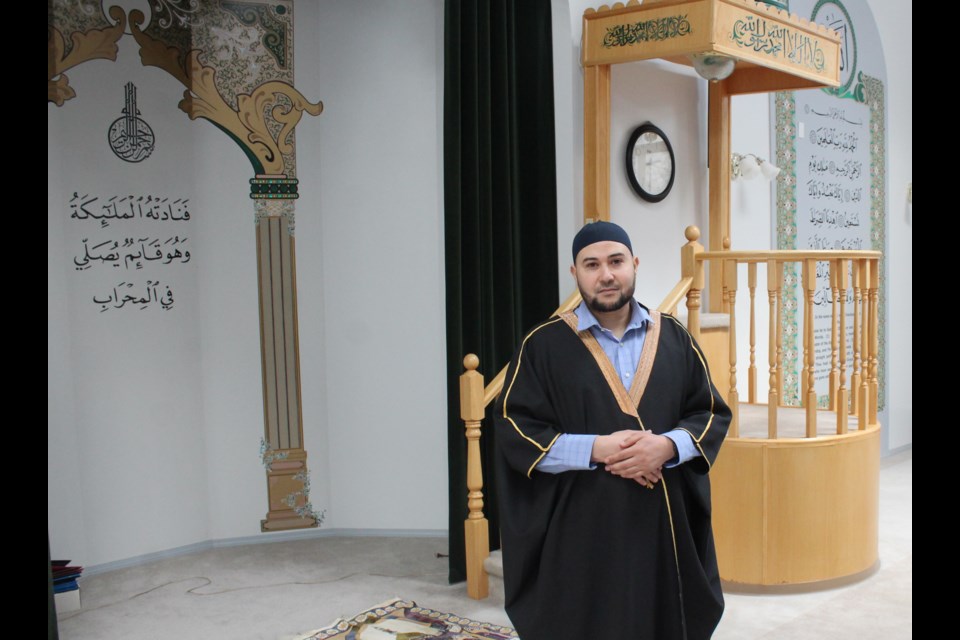LAC LA BICHE - Plans for community Eid celebrations around Lac La Biche following the month of Ramadan have been postponed for the second year in a row as provincial COVID-19 measures continue to limit gathers.
Eid al-Fitr, which concludes the holy month of Ramadan will be celebrated by Muslims across the Lakeland and around the globe on the next new moon, expected on May 12 or 13.
For the second year, local celebrations, which normally include family gatherings and larger public get-togethers will not be held at Lac La Biche's Al-Kareem Mosque.
“Is there disappointment? Of course,” says president of the Lac La Biche Muslim Association, Ali Fyith. “But the current situation we are in right now has been the worst since the pandemic started so this isn’t coming as a surprise to people.”
In previous years, families would gather and organize barbecues, rent skating rinks and bowling alleys to celebrate the end of Ramadan, Fyith says.
A month of reflection
During the Islamic holy month of Ramadan Muslims around the world participate in daylight fasting, which is broken at sunset when families and friends come together to share meals, conversations and engage in communal prayer, known as tarawih, or night prayers.
Ramadan's 30 days of fasting is a time for deep personal reflection and a practice of cleansing the body, mind and spirit of impurities.
While the global pandemic has affected many aspects of religious practices, says the local Imam Mohammed Abdelwahab, the community has shown great strength and adaptation.
The local Mosque, known to be the second oldest in Alberta, does have members who continue to attend nightly prayers in-person, while others join tarawih through Zoom, says the Imam.
New COVID restrictions imposed by provincial officials last Tuesday now restrict occupancy in Alberta places of worship to just 15 people to comply with public health measures. The latest wave of COVID cases has hit the Lac La Biche community particularly hard. As of Friday afternoon the Lac La Biche region has 162 active cases of COVID-19 in a population of just over 10,000. The case rate is the second highest in the province. When the Ramadan month began in the middle of April, there were just four active cases in the community.
Precautions
With many members choosing to answer the call for prayer at home, the Mosque is able to provide plenty of space where worshippers can pray within socially-distanced sections marked out on the floor with green tape, the Imam adds.
Worshipping from home has been encouraged by Muslim leaders and scholars internationally to prevent the spread of COVID, leading some Mosques to close their doors entirely to public prayer during Ramadan and Eid.
Imam Abdelwahab says the Al-Kareem Mosque has been much quieter over the last 16 months as the majority of the congregation have opted to pray from home over COVID-19 concerns or simply because they would rather avoid dealing with public health protocols during prayer.
For Fyith and others, the consequences of not following public health measures would adversely affect many sectors of the community, he says.
“A lot of our community members are business owners and they understand the magnitude of not following the rules," said Fyith, who is a business owner himself. "It was easy for us to comply and to get everybody on board."
Acknowledging the recent conflicts in the province between churches and provincial health orders, Fyith said a person's faith can be a very strong motivator.
Not being able to host Eid gatherings or take part in regular worship events with the congregation during the holiest month in the Muslim calendar has been unfortunate, he says, but the focus must remain on the overall health and wellness of residents.
"That's why they put the restrictions in. It's the best interests of us whether we can see that or not... ultimately, the government is trying to keep people safe," he said.
The Lac La Biche region has a large Muslim population, most are direct family descendants of Lebanese settlers who came to the community more than 100 years ago. Recent statistics show the community with Canada's largest per-capita population of Muslim people.



